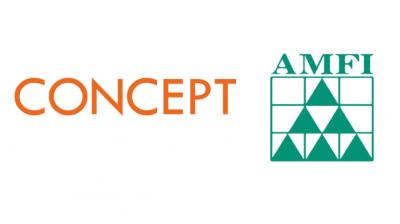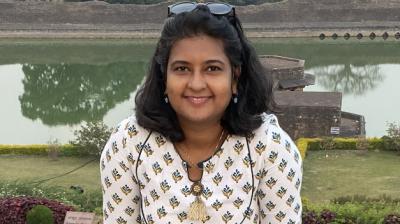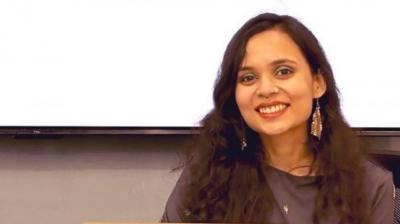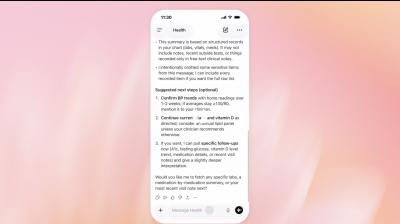Godrej Enterprises Group has rolled out the latest edition of its 'Har Ghar Surakshit' campaign as the initiative enters its ninth year, expanding its scope to support the company’s larger push in the smart home segment.
This year’s edition shifts the focus from purely physical security to digital mindfulness, highlighting how online behaviour is now just as critical to safeguarding the home as a strong front-door lock. The 2025 edition of the campaign also introduces the Accidental Invitation App - developed with support from Meta - to educate users about the security risks of online oversharing through personalised scores and safety recommendations.
We caught up with Shyam Motwani, business head - locks and architectural solutions, Godrej Enterprises Group, to discuss how Har Ghar Surakshit shifts the home-safety narrative toward digital mindfulness, the thinking behind the Accidental Invitation Initiative, and how Godrej is redefining security in a connected world.
Edited excerpts:
What are the key objectives of the new edition of Har Ghar Surakshit, and how does the accidental invitation initiative align with Godrej’s broader vision for home safety?
This ninth edition of Har Ghar Surakshit reflects how home safety needs have matured. Our objective is to recognise that real security in today’s world does not end at the front door. With digital behaviour becoming deeply intertwined with our personal lives, we felt it was necessary to broaden the conversation to include digital mindfulness.
The accidental invitation initiative is a critical piece of that evolution. Through the app, we educate consumers about how oversharing on social media through location check-ins, vacation posts, or live updates can unintentionally compromise physical security. The app gives a personalised 'invitation score' and actionable insights, helping individuals understand their risk profile. This initiative supports Godrej’s mission of enabling safer homes by combining purpose- driven awareness with pragmatic, technology-led solutions.
Is this shift to digital safety driven by changing consumer behaviour, the rise in online risks, or a deliberate strategic repositioning for the brand?
It is a combination of all three, and that’s precisely what makes this edition of Har Ghar Surakshit deeply strategic. From the consumer side, people are increasingly sharing their lives online in richer, more real-time ways. That behaviour, combined with a substantial rise in social-media-linked cybercrime, underlines a very real and growing risk - digital exposure translates into physical vulnerability.
Strategically, Godrej has always stood for trust and protection. Given our legacy in home safety and locks, we are uniquely positioned to serve not just as a hardware provider, but as a trusted guardian, helping people navigate risks both online and offline. This shift aligns with our long-term vision, to redefine safety in a connected world.
Given the sensitivity of analysing social media behaviour, how does the Accidental Invitation App ensure user data privacy and security?
Data privacy was a foundational principle in the development of the app. The Accidental Invitation App works only with the explicit consent of the user. We analyse minimal, permissioned signals to compute the risk score, we do not store or share personal data beyond that purpose. The app architecture is designed for maximum transparency, users see what is being scanned, and the insights are returned in a clear, actionable manner. Also, our collaboration with Meta allowed us to embed robust privacy frameworks and ethical guardrails into the design. The goal is not data harvesting but self-awareness. Users remain fully in control at every stage.
How do you see digital mindfulness evolving as a part of home safety in coming years?
Digital mindfulness is becoming one of the most fundamental dimensions of home safety. As homes grow more connected with IoT devices, smart locks, the distinction between physical and digital security is fading. I believe that in the future, how we behave online, what we post, how we share, how public or private our digital footprint is, will be considered just as important as how strong our front door lock is.
Over time, conscious digital behaviour will become a default safety habit in households, not a niche or add-on. Education and tools like the Accidental Invitation App are part of our long-term commitment to help build that mindset.
How will you measure the real-world impact of this digital-mindfulness edition of the campaign?
We are deploying a multi-pronged measurement framework. First, the app itself provides anonymised aggregate data: how many users check their score, how often they revisit, which digital habits they correct. These data points help us understand engagement and behaviour change. Second, our longstanding home safety check-up program which has already conducted over 1.7 lakh check-ups, remains central. These on-ground audits give us visibility into how digital awareness translates into physical safety practices. Third, we will track business indicators - adoption rates of digital locks (especially our new Neo range), changes in purchase behaviour, and growth in our smart home portfolio. Ultimately, our success metric is behavioural shift, not just reach.
What are the key mediums and platforms you are leveraging for this edition of Har Ghar Surakshit?
Our approach is deliberately omnichannel. Since the core of the Accidental Invitation Initiative is digital behaviour, we are leaning strongly into digital platforms, the app itself, social media, influencer partnerships, digital films that dramatise oversharing scenarios. But digital alone is not sufficient. We are complementing this with on-ground home safety check-ups and experiential outreach. These face-to-face interactions bring personal relevance to the message and help consumers internalise
the behavioural change. Our aim is to weave digital mindfulness into everyday life, not confine it to the virtual world.
In a category where people interact daily but may rarely think deeply, how do you build strong brand recall and an emotional connection?
It begins with reimagining the conversation. Instead of just promoting a product, we are engaging people around a larger purpose protecting what matters most, both physically and digitally. When we talk about oversharing online, we’re not scaring people; we are empowering them.
Har Ghar Surakshit has always been a platform that bridges creativity, technology, and real-life safety. By consistently highlighting real behaviours and offering real help through check-ups, tools, and education, we build trust. That trust, over time, becomes emotional connection. People don’t just buy a lock, they buy into peace of mind.
Godrej is a legacy brand. How do you stay relevant to younger, digitally native consumers while upholding decades of trust?
Our strategy has always been to marry heritage with innovation. Godrej stands for reliability, quality, and trust, and those values resonate deeply across generations. At the same time, we are investing heavily in future-ready solutions - smart locks, connected services, AI-based platforms, and digital tools. For younger consumers, we offer products that are intuitive and modern for longer-standing consumers, we provide the assurance that comes from a brand with a century-plus legacy. We sound authentic because we listen, we learn, and we evolve. And most importantly, we deliver on promise whether it is durability, design, or digital safety.

.jpg)











